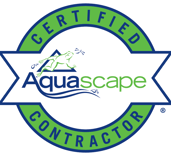The Pros and Cons of Different Ecosystem Pond Designs
Aquagrace


Ecosystem ponds are a popular choice for homeowners looking to create a harmonious and self-sustaining water feature in their outdoor space. These ponds mimic natural ecosystems, incorporating aquatic plants, beneficial bacteria, and fish to maintain a balanced and healthy environment. When planning an ecosystem pond, choosing the right design is essential to achieve your desired aesthetic and functionality. In this article, we will explore the pros and cons of different ecosystem pond designs to help you make an informed decision.
1. Natural Pond Design
Pros:
Aesthetic Appeal: Natural pond designs emulate the beauty of untouched nature, creating a serene and organic ambiance in your landscape.
Wildlife Attraction: The natural design of the pond will attract various wildlife, such as birds, butterflies, and frogs, enhancing the ecosystem's biodiversity.
Low Maintenance: Once established, natural ponds tend to require less maintenance due to the self-regulating ecosystem.
Cons:
Limited Customization: Natural ponds follow a more organic layout, which may limit the ability to incorporate specific design elements or features.
Higher Initial Cost: Creating a natural-looking pond may require more extensive excavation and landscaping work, leading to higher initial costs.
2. Formal Pond Design
Pros:
Clean and Symmetrical Look: Formal pond designs offer a clean and symmetrical appearance, adding a touch of elegance to your outdoor space.
Controlled Planting: With defined planting areas, formal ponds offer better control over the growth and arrangement of aquatic plants.
Versatility: Formal designs can be easily integrated into various landscape styles and complement architectural elements.
Cons:
Higher Maintenance: Formal ponds may require more regular maintenance, such as pruning and grooming plants, to maintain their structured appearance.
Less Wildlife Attraction: The controlled design may attract fewer wildlife species compared to natural ponds.
3. Koi Pond Design
Pros:
Focus on Fish: Koi ponds are specifically designed to provide an ideal environment for koi fish, allowing you to enjoy these colorful and fascinating creatures.
Artistic Elements: Koi ponds often incorporate decorative elements like waterfalls and sculptures, adding an artistic touch to the pond.
Cons:
Increased Filtration Needs: Koi produce more waste than typical pond fish, necessitating a robust filtration system and regular water quality monitoring.
Limited Plant Options: Koi may consume or uproot some aquatic plants, limiting the variety of plants that can be included in the pond.
4. Pondless Waterfall Design
Pros:
Space-Saving: Pondless waterfall designs are ideal for smaller yards or areas with limited space.
Low Maintenance: With no standing water, there is no need to worry about maintaining fish or water plants.
Cons:
Lack of Wildlife Habitat: Pondless waterfalls do not support the same level of wildlife as ponds with a full ecosystem.
Limited Aesthetic: While visually appealing, pondless waterfalls lack the charm of a pond's complete ecosystem.
Conclusion
When selecting an ecosystem pond design, it's essential to consider your preferences, budget, available space, and desired level of maintenance. Natural pond designs offer a picturesque and self-sustaining ecosystem, while formal designs provide a more structured and elegant appearance. Koi ponds are ideal for those who wish to focus on ornamental fish and artistic elements, while pondless waterfalls offer a space-saving and low-maintenance option.
Each design has its unique advantages and drawbacks, so weigh the pros and cons carefully to find the perfect ecosystem pond design that complements your lifestyle and enhances the beauty of your outdoor space. Consult with a pond professional to ensure that your chosen design aligns with your vision and suits the specific conditions of your landscape. With the right design, your ecosystem pond will become a captivating centerpiece that brings joy and tranquility to your home for years to come.




